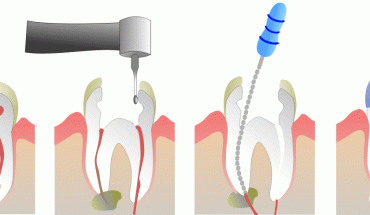The Ultimate Guide to Root Canal Treatment: Everything You Need to Know
Welcome to the most comprehensive guide on Root Canal Treatment you’ll ever need! At Expressions Dental, we’re committed to providing you with the best dental care, and that includes educating you on various dental procedures. So, let’s dive right in!
Table of Contents
- What is Root Canal Treatment?
- How Painful is a Root Canal?
- Why Do Root Canals Take 2 Visits?
- Is a Root Canal a Major Procedure?
- Do I Need a Crown After a Root Canal?
- Root Canal Recovery Time
- FAQs
- Conclusion
What is Root Canal Treatment?
A root canal is a dental procedure aimed at treating infection at the center of a tooth. It involves removing the infected pulp, cleaning the pulp chamber, and sealing it. For more details on what a root canal involves, check out our Root Canal Treatment Steps.
Why Do Root Canals Take 2 Visits?
Typically, root canals require two visits: one for cleaning and shaping the root canal, and the second for filling and sealing the tooth. The two-step process ensures that all infection is eliminated. Read more about what to expect during a dental visit.
Is a Root Canal a Major Procedure?
While it’s more complex than a dental filling, a root canal is a standard procedure that many dentists perform. It’s generally considered a minor to moderate procedure. For more on dental procedures, visit our Root Canal page.
Do I Need a Crown After a Root Canal?
In most cases, a crown is recommended to protect the tooth and restore its function. Learn more about dental crowns and their benefits.
Root Canal Recovery Time
The average recovery time is a few days to a week. During this period, you may experience some discomfort, which can be managed with over-the-counter pain medication. For more on recovery, read our guide on Root Canal Recovery.
FAQs
Yes, but it’s advisable to wait until the anesthesia wears off to avoid biting your cheek. Stick to soft foods for the first few days. Learn more about post-procedure care.
Antibiotics are generally not required unless the infection has spread to other areas.
Root canals are most common among adults aged 30 to 50, but they can be performed at any age.
Avoid hard and crunchy foods, and refrain from smoking or drinking alcohol for at least 48 hours.
Sedation is optional and can be discussed with your dentist.
A root canal is generally preferred to save the natural tooth. However, in severe cases, extraction may be necessary. Learn more about Tooth Extraction.
If the tooth is severely decayed and the infection has spread, a root canal may not be effective.
Any post-procedure discomfort should subside within a few days.
The most painful part is often the infection itself, not the procedure.
Regular dental check-ups and good oral hygiene can help prevent the need for a root canal.
The main causes include deep decay, repeated dental procedures, and trauma to the tooth.
Some common side effects include minor pain, swelling, and sensitivity.
Conclusion
We hope this guide has answered all your questions about root canal treatment. For more information or to schedule an appointment, contact us today!









